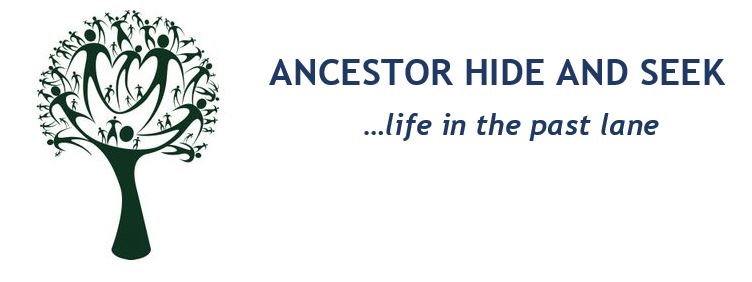Robert Steele was my uncle, but I don't know if we ever crossed paths, as he died, tragically at age 44, the year I was born.
He was my mom's eldest brother, a half brother in fact, which she didn't learn about until she was around 16. That's what happens when you are the youngest of 7 children - everyone just assumes you know things. Either way, I don't get the impression that being half siblings mattered at all. They were one big family. End of story.
Bob was a veteran of WWII. He was a Wireless Air Gunner. Being pretty non-military I had no idea what that means, so I found this interview with a Wireless Air Gunner Click to see interview with a Wireless Air Gunner Veteran. If the link is broken or you don't have time, the W.A.G. learned morse code, and then learned to shoot from a plane's gun turret. I was surprised so much of the training for RCAF crew occurred in Southern Ontario, near Guelph, St. Catharines and Fingal. Who knew?
Since privacy rules still apply, I cannot access Bob's actual service record, so the next best thing is to relay a story told by Bob's brother-in-law, Bob Connor. Apparently Bob Steele completed all his missions, and he signed up for more. Then he was in a plane that was shot down by a submarine. The pilot died right away, but Bob's last memory of that day was of being in a life boat with the other crew. His next memory was waking up 23 days later in a hospital in England.
I haven't had any luck finding out any records or details on this, but will definitely update if I do. Stay tuned....
He was my mom's eldest brother, a half brother in fact, which she didn't learn about until she was around 16. That's what happens when you are the youngest of 7 children - everyone just assumes you know things. Either way, I don't get the impression that being half siblings mattered at all. They were one big family. End of story.
Bob was a veteran of WWII. He was a Wireless Air Gunner. Being pretty non-military I had no idea what that means, so I found this interview with a Wireless Air Gunner Click to see interview with a Wireless Air Gunner Veteran. If the link is broken or you don't have time, the W.A.G. learned morse code, and then learned to shoot from a plane's gun turret. I was surprised so much of the training for RCAF crew occurred in Southern Ontario, near Guelph, St. Catharines and Fingal. Who knew?
Since privacy rules still apply, I cannot access Bob's actual service record, so the next best thing is to relay a story told by Bob's brother-in-law, Bob Connor. Apparently Bob Steele completed all his missions, and he signed up for more. Then he was in a plane that was shot down by a submarine. The pilot died right away, but Bob's last memory of that day was of being in a life boat with the other crew. His next memory was waking up 23 days later in a hospital in England.
I haven't had any luck finding out any records or details on this, but will definitely update if I do. Stay tuned....


Comments
Post a Comment